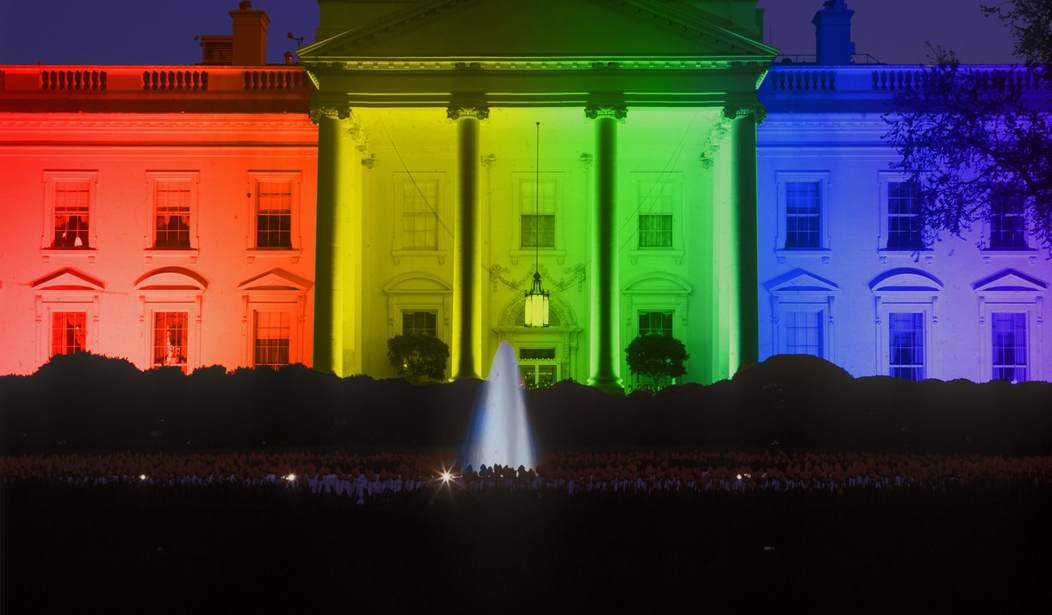Forget government-mandated gay wedding cakes — some state and local governments are considering blatant favoritism for LGBT businesses.
States and municipalities have long engaged in a kind of affirmative action for government contracts, and some activists believe this should be extended to lesbian, gay, bisexual, and transgender businesses. Preferential treatment has long been given to underrepresented business leaders, such as blacks, Latinos, and women.
“Historically, contracts have gone to those who have the most access to the people who make the decisions, and all we’re trying to do is all make sure those great LGBT business enterprises in Philadelphia have a seat at the table,” Jonathan Lovitz, senior vice president at the National LGBT Chamber of Commerce, told the radio program Marketplace.
The National LGBT Chamber of Commerce has already successfully lobbied for preferential treatment in California, Massachusetts, and Washington state’s King County. The most recent target? Philadelphia, Pa.
Marc Coleman, president of the Philadelphia-based digital design firm The Tactile Group, claimed that his homosexual identity has cost him customers.
“People found out that I had a husband and decided not to work with us before, so there are actual real stigmas and barriers,” Coleman told Marketplace. He insisted that “LGBT-owned businesses should be given equal access to city work: to help even the playing field in the face of discrimination.”
In 2016, 30 percent of the $991 million Philadelphia awarded in city contracts went to firms owned by racial minorities, women, or people with disabilities. Activists like Coleman and Lovitz would have the city extend that preferential treatment to LGBT companies as well.
In order to achieve this, the activists would have to prove that these businesses really are disadvantaged, and that would require a city study looking at whether LGBT businesses are subject to bias in city contracts.
“If you can’t prove that there’s a disadvantage, or a disparity, then it wouldn’t make sense to provide extra benefits,” Amber Hikes, who heads the city of Philadelphia’s Office of LGBT Affairs, told Marketplace.
Philadelphia officials and LGBT activists have been discussing the study, but no decision has been made. On the state level, Democrat Governor Tom Wolf launched a study last fall, examining how to protect LGBT businesses from discrimination in government contracts.
The push is not without its critics. Eugene Volokh, a law professor at UCLA, disapproves of public contract quotas in general, and this expansion in particular. “As best I can tell, neither being gay nor straight makes you a better construction manager, let’s say,” Volokh told Marketplace.
According to a new survey conducted by the Harris Poll and sponsored by the LGBT activist group GLAAD, more Americans in 2017 than in 2016 expressed discomfort in various settings with LGBT people. While 79 percent of Americans supported equal rights for LGBT people, the percentage of “detached supporters” — those who favored equal rights but expressed discomfort in some situations — increased from the last two years.
A full 55 percent of LGBT people in the survey said they experienced discrimination, an 11-point increase from the previous year.
At the same time, however, many conservatives — especially Christians — also feel embattled in the current cultural setting.
Last year, the American Civil Liberties Union (ACLU) filed a lawsuit against a Roman Catholic hospital that refused to perform a hysterechtomy for a woman who identified as transgender.
In the name of fighting “discrimination,” LGBT activists — and government officials — have forced conservative Christian bakers, florists, or photographers to serve same-sex weddings, regardless of their belief that marriage is between a man and a woman. Some activists have openly declared their intentions to “punish the wicked,” i.e. anyone who would try to live by the dictates of his or her conscience.
Jack Phillips, the Colorado baker who refused to bake a cake for a same-sex wedding but who gladly sold other baked goods to LGBT people, has to defend his right to free speech and religious freedom at the Supreme Court.
If LGBT businesses get special consideration, should small business owners who believe marriage is between one man and one woman be subject to the same courtesy? There is ample reason to think both groups experience some kind of animus and discrimination — just in markedly different ways.
When was the last time a city denied a contract to an LGBT business on the basis of sexual identity or orientation? On the other hand, there are numerous examples of socially conservative businesses and nonprofits not only branded as “hate groups” for their position on sexuality but also targeted by activists and the government because of it.









Join the conversation as a VIP Member